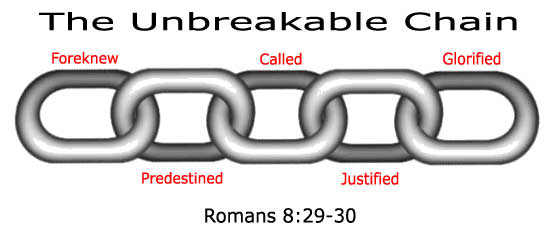In the account of Matthew 19:16-21 (and the parallel passages of Luke 18:18-23; Mark 10:17-22), a rich, young ruler approaches Jesus and asks Him what he must do to have eternal life. (Luke also contains the account of a lawyer who asks a similar question Luke 10:25-28. I have written about the Rich Young ruler before here.)
Jesus points the young man to the law, and specifically to the Ten Commandments. The man responds that he has kept all of the commandments since he was a boy.
So Jesus says that the man still lacks one thing: he must go out and sell everything he owns, and then give the money to the poor.
At this, the rich young ruler becomes forlorn and goes away, because he was very rich.
What is the Story of the Rich Young Ruler about?
Many pastors and scholars point to this passage as primary evidence that good works and obedience to the commandments are required to receive eternal life.
 But there are numerous considerations from the text which reveal that this is not what Jesus is saying, and this is not how we should understand the passage.
But there are numerous considerations from the text which reveal that this is not what Jesus is saying, and this is not how we should understand the passage.
1. We must first understand the meaning of “eternal life”
What is eternal life, and how is it gained?
To answer this, let me briefly summarize some of what I teach in my online course, The Gospel Dictionary.
There are three main truths to remember about eternal life.
First, eternal life begins the moment we believe in Jesus for it.
Since eternal life is the life of God given to those who believe in Jesus Christ, it begins the moment we receive Him (John 3:16; 5;24; 6:47; etc).
Eternal life is not some future possession, but is something we receive now, at the moment we are placed in Christ Jesus through faith.
Since eternal life is the life of God, and since this life is in Jesus, then anyone who shares this life with Jesus, also shares this life with God. To put it more succinctly, since Jesus is eternal life (cf. 1 John 1:2), we receive eternal life when we receive Jesus.
Second, eternal life is eternal.
In other words, everlasting life is everlasting.
This means that once you have eternal life in Jesus, you can never lose it.
Earl Radmacher used to say that “If you can lose your everlasting life, it has the wrong name.” Just as you cannot be unborn after you are born, so also, when you are born again into the family of God, you cannot ever go back and become unborn.
Once a person believes in Jesus for eternal life, they receive it permanently, and no matter what they say, think, or do in the future, their new birth into God’s family is a historical fact and cannot be undone.
Every single passage in the Bible which appears to teach that eternal life can be lost is not in fact talking about eternal life, but is instead referring to something else, such as physical life here on earth, inheritance and reward in the future, or to some sort of deliverance (salvation) from temporal catastrophe or disaster.
There is no verse in the Bible which teaches that a person can lose their eternal life.
Finally, since eternal life begins the moment we believe, and since eternal life is forever, this means that we can begin experiencing eternal life now.
Some seem to believe that eternal life does not begin until we die, at which point we will float around on clouds and play harps. When people have such an idea, it is no wonder they are not all that excited or thrilled about experiencing eternal life.
But once we understand that eternal life begins in this life, when we receive the life of God through faith in Jesus, it becomes much more thrilling to think about it.
To experience eternal life with God means that we live up to our full creative, adventurous potential as human beings, so that we begin to experience true life now.
It refers to experiencing “the age to come” here and now in this age. Eternal life is not just a future experience to be longed for, but is a way of life that can be lived here and now.
It is helpful to think of eternal life as a whole new life in a whole new world.
We pass through the doorway into this new this world by faith in Jesus Christ. And the doorway is not a revolving door. It is a one-way door. Once you are through the door and in the new world, you can never go back.
But once we are through the door, there is a whole world to explore. Those who sit at the entrance, bemoaning what they have left behind, have not yet begun to experience all the lies ahead.
Newcomers are encouraged to do more than just sit at the doorway, content that they have entered into a new life with Jesus Christ. Instead, they are encouraged to follow Jesus into all the beauty and adventures that awaits them in this new world. Jesus calls people who have entered into new life with Him to follow Jesus wherever He leads, to go higher up and further in.
In this way, it is not wrong to recognize that while eternal life is a free gift and a present expression, it not only refers to the quantity of life (life that never ends) but also the quality of life (the experience of God’s life that only gets better over time).
This clarification is extremely helpful when trying to understand various tricky texts in the Bible about eternal life, and especially in those texts that seem to imply that eternal life can be earned or inherited. Such texts are not talking about how we can earn or work for the free gift of eternal life, but are instead referring to the ongoing experience of eternal life here and now.
Let me summarize these three truths about eternal life:
Eternal life is God’s life in us so that we can have life with Him that never ends, and it is freely given to all who believe in Jesus, and experienced in greater degrees as we follow Jesus.
While it is an eternal possession that is received by faith alone in Jesus, it can also be a present reality that is experienced when we follow Jesus in discipleship.
Eternal life refers to both an eternal possession we receive by faith alone in Jesus Christ alone and a present experience we can enjoy here in this life as we follow Jesus by faithful obedience to His leading.
This brief study of eternal life helps us understand the story of the Rich Young Ruler in Matthew 19:16-21 (cf. Luke 18:18-23; Mark 10:17-22)

2. Matthew 19:16-21 is about inheriting eternal life, not earning eternal life
First, the passage is clearly about inheriting eternal life, not receiving it (cf. Matt 19:29; Mark 10:17, 30; Luke 18:18, 30).
Support for this is found in the following context where Jesus says that it is difficult for the rich to enter the Kingdom of heaven (Matthew 19:23; Mark 10:23; Luke 18:24), and then equates the Kingdom of heaven with inheriting eternal life (cf. Matthew 19:29; Mark 10:30; Luke 18:30).
So the rich young ruler is not technically asking about how to receive eternal life, but how to inherit it, or experience it, in this life. Jesus answers accordingly.
The man felt that he should be experiencing eternal life because of his strict obedience to the law, but he also felt that something was lacking. So he asked Jesus about how to inherit, or experience, eternal life now. Jesus ran a quick diagnostic test on the man, and quickly determined two sources of the man’s problem.
First, the man was proud.
He thought he had perfectly obeyed the law. He said he has obeyed it from his youth.
This, of course, is completely impossible, as Jesus knew. Yet rather than challenge the young man on his perceived moral perfection, Jesus “upped the ante” on the man as a way to show the man that he was not as righteous as he thought.
Jesus told the man to do something which the man could not do. He should sell all his riches and give the money to the poor. Yet even this was not the end, for after he did this, Jesus told the man to “Come, follow Me” (Matthew 19:21; Mark 10:21; Luke 18:22).
The point of Jesus was that the young man would never “arrive.” The main thing holding the young man back from experiencing the life of God was his self-righteous spiritual pride. The words of Jesus were intended to begin dismantling this pride.

Second, Jesus recognized that wealth was the source of the rich young ruler’s problem.
This is why Jesus focused on the riches of this young man, instead of on some other area where the young man was blind to his own sin.
After all, even though Jesus asked about the commandments, there is no commandment or statement in the Mosaic Law to sell everything and give it away. So why does Jesus seem to shift from focusing on the commandments to giving up riches?
The answer is found within the law itself. The law promised wealth and riches to those who completely obeyed the law (cf. Deut 28:1-14). This young man was rich and wealthy at a very young age, which made him believe that he must have obeyed the entire law since his youth.
This is why Jesus told him to sell all his possessions and give away all his wealth. It wasn’t exactly about the money. It was about the false sense of moral perfection that the money created in the man’s heart. When Jesus told the man to give up his wealth, He was saying that the man could not look to his wealth as a sign of God’s blessing.
In fact, it is quite possible that this young man did not keep the law as well as he thought. In the Ancient Mediterranean world, it was thought that wealth was a “zero sum game.” They believed that there was a fixed amount of material wealth in the world, so that the only way people gained more money and riches was if others lost it.
Of course, from a theological perspective, the only way someone would lose their riches and wealth is if they were sinful, and God displayed His displeasure by taking away their wealth and giving it to someone else who pleased Him.
But is this how the world really works? Is it only the righteous who are rich and only the wicked who are poor? No. Quite the opposite, in fact.
The same was true in biblical times as well, which is why some of the prophets wonder why the wicked prosper and the faithless live in ease (cf. Jer 12:1).
The sad reality is that the rich often (but not always) become rich because they murder, steal, and bear false witness, which are exactly the sins Jesus questioned the rich young ruler about (Matt 19:18; Mark 10:19; Luke 19:20). It is entirely possible that the rich your ruler became rich at such a young age because he, or his family, engaged in various practices which made them rich at the expense of the poor.
But this young man was ignorant or blind to such things, and thought that because he was rich, he was blessed by God, and therefore, obedient to the law. By telling him to sell his riches and give his money to the poor (who, according to this line of thought, were poor because they were sinners), Jesus was challenging this entire way of thinking.
So although eternal life is mentioned in this passage, the rich young ruler is not asking, and Jesus is not explaining, how to gain eternal life.
The rich young ruler isn’t asking about how to go to heaven when he dies. He is asking about the new world that God is going to usher in, the new era of justice, peace, and freedom God has promised his people. And he is asking, in particular, how he can be sure that when God does all this, he will be part of those who inherit the new world, who share in its life.
Jesus and the rich young ruler are talking about how to experience God’s life (eternal life) in this life.
While the commandments are mentioned, the instructions of Jesus are not even about keeping the commandments, but about spiritual pride and arrogance.
What is the Meaning of Matthew 19:16-21 and the Rich Young Ruler?
Therefore, when all the factors are considered, we see that the passage is primarily about how Jesus challenged the status quo theological belief that the rich are loved by God while the poor are under His judgment.
 Jesus sought to reverse this entire line of thought, as the following contexts make quite clear (Matthew 19:23-30; Mark 10:23-30; Luke 18:24-30). It is difficult for the rich to enter the Kingdom of heaven because they rely on their riches as evidence that they are already living the life God wants for them.
Jesus sought to reverse this entire line of thought, as the following contexts make quite clear (Matthew 19:23-30; Mark 10:23-30; Luke 18:24-30). It is difficult for the rich to enter the Kingdom of heaven because they rely on their riches as evidence that they are already living the life God wants for them.
Many of the rich people in the days of Jesus (and even many today) believe that their riches prove that they are under God’s blessing and are part of His family. Jesus is saying, “If you think your riches prove that you have eternal life, give up your riches. They don’t prove anything about eternal life one way or the other.”
Eternal life is received by believing in Jesus for it. And there is no amount of good works you can do to keep, earn, or prove that you have eternal life.
But once you have eternal life through faith in Jesus, you can gain a better experience of eternal life by following Jesus on the path of discipleship. This might require you to make some difficult decisions in life.
Bottom line: You DO NOT need to give away your wealth to receive eternal life … but you might need to be more generous with it if you want to experience the reality of God’s life in you.
Do you want to inherit, or experience, eternal life in this life? You first, of course, need to make sure you have received the free gift of eternal life through faith in Jesus.
But after that, to experience eternal life, you must not depend on your riches or worldly success, nor your self-deceived ability to obey all of God’s law (which doesn’t lead into love anyway, see Law), as signs that you are fully experiencing all that God has for you.
Instead, to live within the Kingdom of God and experience the joys and blessings of eternal life, you must humbly follow Jesus wherever He leads, even if it is into poverty and obscurity.
 Understanding the Gospel requires us to properly understand the key words and terms of the Gospel. Take my course, "The Gospel Dictionary" to learn about the 52 key words of the Gospel, and hundreds of Bible passages that use these words.
Understanding the Gospel requires us to properly understand the key words and terms of the Gospel. Take my course, "The Gospel Dictionary" to learn about the 52 key words of the Gospel, and hundreds of Bible passages that use these words.
This course costs $297, but when you join the Discipleship group, you can to take the entire course for free.






 Neither is too difficult for God, but the point is that if God justifies us freely by His grace while we were yet sinners, it is no problem whatsoever for God, once we have been justified, to then glorify us and freely give us everything else we need for life and godliness (2 Pet 1:3).
Neither is too difficult for God, but the point is that if God justifies us freely by His grace while we were yet sinners, it is no problem whatsoever for God, once we have been justified, to then glorify us and freely give us everything else we need for life and godliness (2 Pet 1:3).


 If so, we might as well just give up evangelizing right now. You will rarely, if ever, get a non-believer to read the entire Bible, and even then,
If so, we might as well just give up evangelizing right now. You will rarely, if ever, get a non-believer to read the entire Bible, and even then, 

 So, for example, the word “saved” might refer to being delivered from one’s enemies, or getting healed from a sickness, or being rescued from drowning at sea. Obviously, these words are not related to gaining or keeping eternal life. I would guess that the majority of times the words saved, save, salvation, etc., are used in Scripture, they are used in this way (e.g., Matt 8:25; Acts 27:31).
So, for example, the word “saved” might refer to being delivered from one’s enemies, or getting healed from a sickness, or being rescued from drowning at sea. Obviously, these words are not related to gaining or keeping eternal life. I would guess that the majority of times the words saved, save, salvation, etc., are used in Scripture, they are used in this way (e.g., Matt 8:25; Acts 27:31). Once you see the difference in Scripture between the word “saved” and the terms “eternal life” or “everlasting life” or even something like “justification” you begin to see that while there are numerous verses which talk about saving something that can be lost, there is not a single verse in the Bible which talks about losing eternal life, losing everlasting life, or losing our justification. All of these gifts of God, once given, are never revoked or taken back.
Once you see the difference in Scripture between the word “saved” and the terms “eternal life” or “everlasting life” or even something like “justification” you begin to see that while there are numerous verses which talk about saving something that can be lost, there is not a single verse in the Bible which talks about losing eternal life, losing everlasting life, or losing our justification. All of these gifts of God, once given, are never revoked or taken back.


